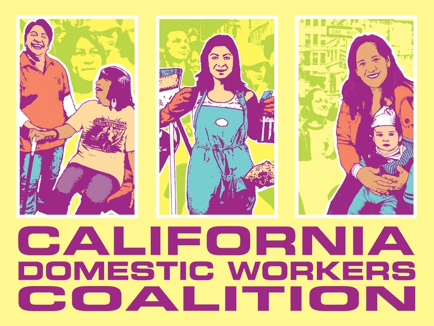SB 686, the Health and Safety for All Workers Act would end workplace safety exclusion |
Today, the California Domestic Workers Coalition joined with Senator Maria Elena Durazo to introduce Senate Bill 686 to end the exclusion of domestic workers from the state’s worker protection laws.
SB 686 would protect the health and safety of workers and their employers by giving Cal/OSHA authority to protect nannies, housekeepers, homecare workers and others in the home workplace. The bill would ensure that domestic workers have the same legal right as other workers to health and safety training and protective equipment, and to be protected from retaliation when they advocate for their own safety at work.
“For too long, the workers we entrust to care for our loved ones and our homes have been endangered, marginalized and dehumanized by the intentional exclusion from California’s workplace protection laws,” said Senator Maria Elena Durazo; “These domestic workers have suffered through the pandemic and through our changing climate with extreme heat and wildfire smoke without the protections guaranteed to all other occupations. California can send a clear message by passing this bill, everyone deserves a safe workplace.”
There are over 300,000 domestic workers who work as housekeepers, nannies, and caregivers in private homes in California, yet household workers have been categorically excluded from basic health and safety protections provided by Cal/OSHA. This exclusion from basic rights is rooted in the long legacy of anti–Black racism and slavery. Because domestic workers are excluded from Cal/OSHA protections, they are regularly exposed to health and safety threats like toxic cleaning products, extreme heat, wildfire smoke, and lifting injuries in the home workplace.
In January, Cal/OSHA and the SB 321 Advisory Committee (the Committee) released California’s first-ever guidelines for occupational safety and health in home workplaces. The Committee also issued policy recommendations including removing the household domestic services exclusion from California labor code to ensure that the Department of Industrial Relations and Cal/OSHA has the authority needed to implement health and safety protections for the in-home workforce.
“The pandemic laid clear how deeply interconnected the health of employers and employers can be, we rely on each other to keep our communities healthy,” said Anna Pisarello an employer of a nanny and member of the SB 321 Advisory Committee, “Employers have played a key role in developing California’s landmark health and safety guidelines and policy recommendations to ensure that we have the resources and tools to support us in protecting our workers from harm.”
SB 686 will take that next step following these recommendations and give Cal/OSHA the authority to develop official health and safety guidance for employers and require employers to adhere to all applicable health and safety regulations.
“In the Advisory Committee, we identified that domestic workers need the right to protection of occupational health and safety, with the authority of the law to put these guidelines in practice.” stated Martha Herrera, a domestic worker member of the SB 321 Advisory Committee, “And to implement these protections, we need to continue to create programs to reach and empower our unique workforce.”
The bill also builds upon the successful state outreach program that ensures workers and employers know their rights while providing resources for employees with compliance.
photo credit: Brooke Anderson @movementphotographer
